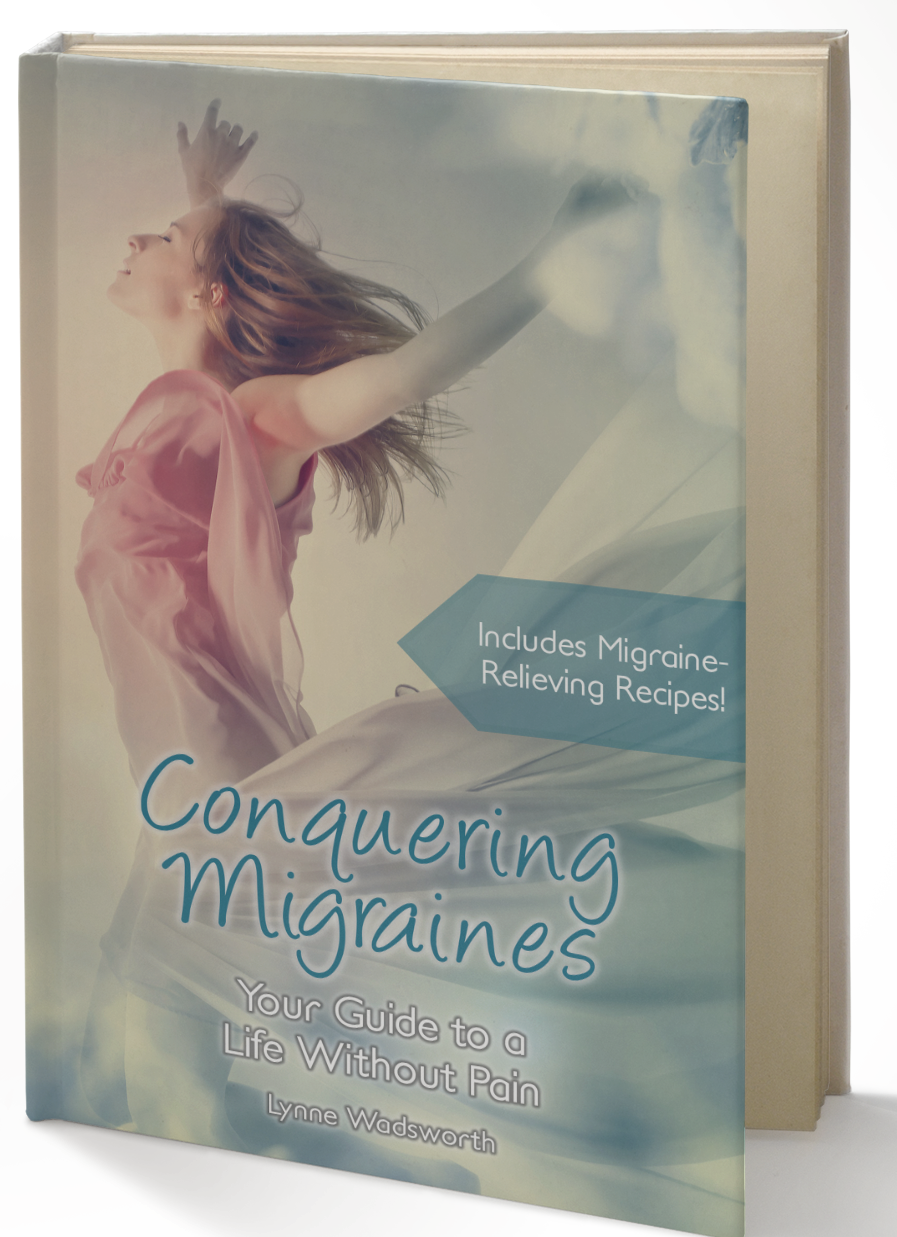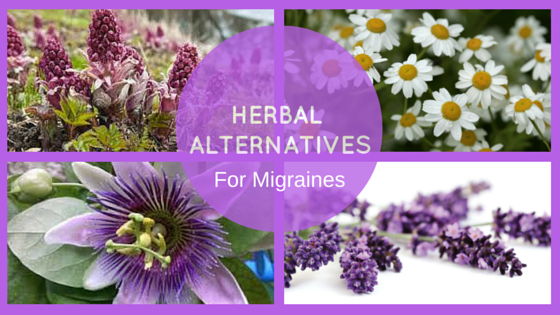In the last migraine blog, we talked about journaling and how important it is to track foods and the environment to learn more about your triggers and how you can prevent them. How did you do? Did you successfully journal this week? Try this for 30 days and then look back over your journal to gain insight. If you haven’t already done so, hop on over to my Website and sign up for my “12 Migraine Triggers & Solutions” report – or – ==>CLICK HERE<==. This week, it’s all about “4 Herbal Alternatives to Prevent and Treat Your Migraine Pain.”
In the past, we have discussed the effect of inflammation of the body tissues as being a source of migraines. Clinical research has shown that reducing inflammation will reduce the occurrence of migraines – which is good news. So, this week we are going to touch on some of the herbal remedies that can be used to control inflammation. These herbal remedies are effective with relieving migraine pain and reducing the frequency of migraines.
I understand that many people think herbal remedies cannot be that effective because they just aren’t prescription medication, but actually, herbal remedies have been used as medicine for thousands of years, and they have actually have proven to be effective for many conditions.
While there are few modern clinical trials to support these findings — in large party due to lack of funding for such types of trials — there are many instances where people have found relief from this type of “treatment.”
Butterbur is a shrub-like plant that is believed to reduce inflammation. For centuries, the roots of the plant have been used to treat pain, allergies, gastric disorders, and headaches.
Clinical trials have shown that Butterbur is effective in reducing the frequency of migraines when taken on a daily basis for at least three months. If using Butterbur, a standardized extract should be used, and never the raw root. This ensures proper dosage and avoids potentially harmful side effects.
Feverfew is a flowering herb belonging to the daisy family. As its name suggests, it is a traditional remedy used to treat fevers. However, studies have shown that Feverfew relieves migraine pain in 70% of patients, and has also been shown to cut down the frequency of migraines by 50%. A chemical (parthenolide), found in the leaves of the plant, is believed to be responsible for these benefits.
Feverfew should be taken on a daily basis to be effective for migraines. Capsules of dried, powdered feverfew leaves are the most common form with the added benefit of the consistent potency of the dosage when taken in capsule form.
Passionflower (which is one of my favorite vines) is a traditional remedy for stress. It can be used as a mild sedative and muscle relaxant that also has anti-inflammatory properties. While the effects of passionflower on migraines has not been tested in any clinical trials — although one study did find it to be effective as a general sedative — it does seem to be most effective for stress-related migraines. Unlike Butterbur and Feverfew, it does not need to be taken on a daily basis to be effective because it has mild analgesic properties and can provide short-term relief from migraine pain.
Essential oils are natural oils distilled from plants. They carry the fragrance of the plant as well as oil-soluble compounds from the plant itself. Essential oils are an herbal remedy in concentrated liquid form.
Essential oils work to relieve head or neck tension by reducing irritation and puffiness and stimulating blood flow. They also have calming effects that can reduce the tension associated with your head and neck. There are a variety of essential oils which I have found very effective for easing the discomfort and aches:
- Lavender reduces tension and has been used as a mood stabilizer and sedative. It is especially beneficial if you tend to get head and neck tension when you are stressed and overworked.
- Peppermint has a cooling effect and stimulates blood flow. It inhibits muscle contractions and causes your muscles to relax.
- Basil oil is a muscle relaxant and has helps with puffiness, irritation and even water retention. It has the added benefit of reducing nausea in addition to soothing severe head or neck tension and discomfort.
- Rosemary oil calms and relaxes the muscle, reducing the discomfort associated with neck and head tension. It has a calming effect and can soothe an upset stomach.
There are a couple of ways you can use essential oils for head tension, but the most common method is to simply apply a few drops of the oil to your skin. I massage it into my temples, forehead, and neck. However, since essential oils are very concentrated, use just a small amount and make sure you do not use the oil by your eyes.
You can also add a few drops to 2-4 cups of boiling water and inhale the vapors as the steam activates the beneficial parts of the oil and reduces the risk of skin irritation.
Another way is to put a few drops of one of the oils into a diffuser – peppermint is especially helpful if you have a tension as it will also open up the nasal passages, which often tend to become a little plugged up and uncomfortable with a migraine.
All of these essential oils can provide relief from the discomfort and nausea associated with head tension. They help you relax and increase your blood flow.
If you would like more information about essential oils, please contact me at lwadsworth@verizon.net.
I hope that this has given you a few more ideas on how to prevent and treat migraines on a more natural basis. If you incorporate any of these into your lifestyle, drop me a line or comment on my blog post on my Website.
In my book, “Conquering Migraines,” I go into more detail on migraine triggers and some effective natural remedies to help prevent and relieve pain associated with migraines. I also have included lots of migraine-safe recipes. Click for more information on my migraine relief book.



I have never heard of passionflower, this seems like a good one for a person who does not have chronic headaches. I tend to get mine when there’s a severe barometric pressure change or illness.
I find mine also are very often triggered with barometric pressure changes, Marian. In Florida that happens way to often!!
Essential oils are wonderful, natural ways to address so many issues. Your suggestions are always so helpful, thank you!